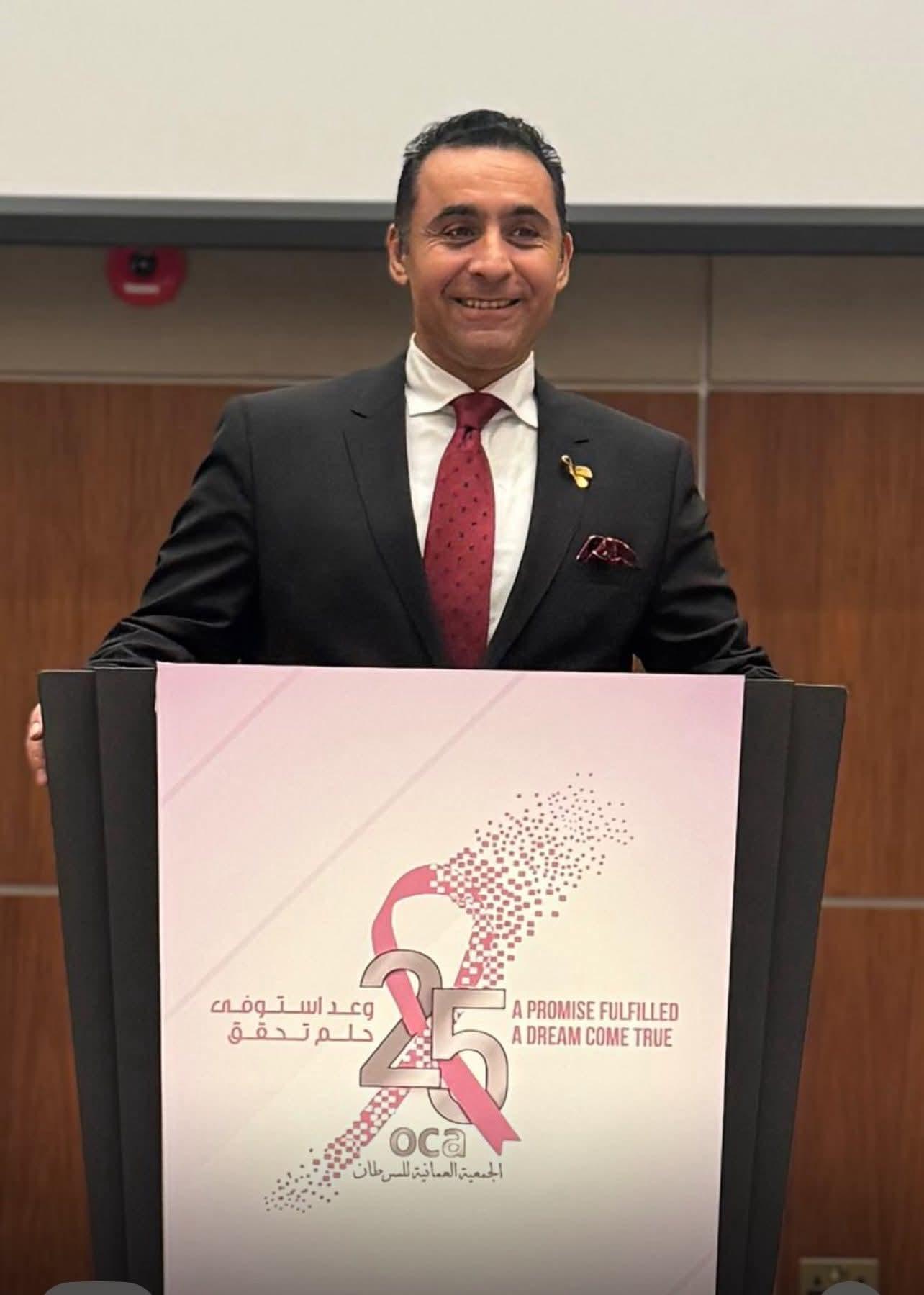
وقعت الدكتورة رانيا المشاط، وزيرة التعاون الدولي، والسيدة إيلينا بانوفا، المُنسق المقيم للأمم المتحدة في مصر، رئيسا لجنة التسيير المشتركة لإطار التعاون بين مصر والأمم المتحدة من أجل التنمية المستدامة 2023-2027، وثيقة الإطار الذي يُمثل آلية وأداة العمل الإنمائي المشترك خلال الخمس سنوات المقبلة، وذلك بحضور السيد الدكتور مصطفى مدبولي رئيس مجلس الوزراء، وعدد من السادة الوزراء، وممثلي المنظمات والوكالات التابعة للأمم المتحدة، والأطراف ذات الصلة من رؤساء مؤسسات التمويل الدولية والهيئات الاقتصادية، والبعثات الدبلوماسية، والجهات الوطنية والقطاع الخاص ومنظمات المجتمع المدني.
وقالت الدكتورة رانيا المشاط، وزيرة التعاون الدولي، إن الإطار الاستراتيجي للتعاون يخضع لهيكل حوكمة دقيق يضمن تحقيق الأهداف المرجوة وتنفيذ المحاور المتفق عليها، وتعظيم العائد من جهود التعاون الإنمائي بين جمهورية مصر العربية والأمم المتحدة وذلك من خلال تعظيم الاستفادة من الميزة النسبية لكل وكالة أممية والقيمة المضافة التي توفرها الوكالات المتخصصة بالقطاعات الاقتصادية والاجتماعية المختلفة، علما بأنه قد شاركت أكثر من 30 جهة وطنية في عملية إعداد وصياغة إطار الشراكة، وذلك بالإضافة إلى الأطراف ذات الصلة من القطاع الخاص، والمجتمع المدني، والأكاديميين وأصحاب الفكر.
وأشارت إلى حرص وزارة التعاون الدولي على تعظيم الملكية الوطنية لإطار الشراكة الجديد وضمان التوافق بين الأهداف والأوليات الوطنية مع المحار الاستراتيجية لإطار الشراكة، لافتة إلى أن إطار التعاون المشترك مع الأمم المتحدة تتم إدارته من خلال لجنـــة التســـيير المشـــتركة بقيـــادة وزيـــر التعـــاون الدولـــي والمنســـق المقيـــم للأمم المتحـــدة، وخمـــس مجموعـــات نتائـــج.
وتحـــت إدارة مكتـــب المنســق المقيــم للأمم المتحــدة، ســيقود فريــق الأمــم المتحــدة القطــري تنفيــذ إطــار التعــاون وســيوفر الإشراف لمختلـــف مجموعـــات الأمـــم المتحـــدة المشـــتركة بيـــن الـــوكالات التـــي تـــم تشـــكيلها. وســـتدعم المجموعـــات المشـــتركة بيـــن الـــوكالات التابعـــة للأمم المتحـــدة، بمـــا فـــي ذلـــك فريـــق إدارة البرنامـــج وفريـــق الرصـــد والتقييــم، وفريــق إدارة العمليــات، ومجموعــة الاتصــالات التابعــة للأمــم المتحــدة، تنفيــذ إطـــار التعـــاون.
وســـيتم تنســـيق مشـــاركة الـــوزارات والمؤسســـات الوطنيـــة ذات الصلـــة فـــي آليـــات تنســـيق إطـــار التعـــاون مـــن خـــلال وزارة التعـــاون الدولـــي بصفتهـــا الرئيـــس المشـــارك للجنـــة التســـيير المشـــتركة بيـــن حكومـــة مصر والأمم المتحدة.
وتعد لجنة التسيير المشتركة بين الحكومة المصرية والأمم المتحدة: أعلـــى مســـتوى إداري لإطــار التعــاون ، وســتضم ممثليـــن رفيعـــي المســـتوى مـــن الـــوزارات / المؤسســـات ذات الصلـــة ورؤســـاء وكالات منظومـــة الأمـــم المتحـــدة فـــي مصـــر، وســـتضمن اللجنـــة التوجيـــه الاســـتراتيجي والإشـــراف علـــى إطـــار التعـــاون، وتُعقــد اجتماعــات اللجنــة عــى الأقــل مــرة فــي وآليــات وأهــداف التنميــة الوطنيــة والإقليميــة والدوليــة، وســوف تعقد اجتماعات اللجنة على الأقل مرة واحدة سنويًا لإجراء اســتعراضات ســنوية وتقييــم تنفيــذ برامــج العمــل المشــتركة، وفــي حالــة تغيــر الســياق الوطنــي، يتــم اتخــاذ قــرارات بشــأن التعديــات أو الاســتعراضات لإطار التعــاون لضمــان اســتمرار الملائمة والتركيــز عــلى ذلك.
ويتم استعراض التقدم المُحرز في إطار التعاون سنويًا من خلال مجموعات النتائج بدعم من مجموعة الرصد والتقييم، للنتائج على مستوى المخرجات والنتائج على مستوى النواتج. وسيتم تقديم تقرير النتائج السنوية للفريق القطري للأمم المتحدة إلى لجنة التسيير المشتركة للمراجعة السنوية.
May 10, 2023
The Ministry of International Cooperation Highlights Details of the Egypt – UN Sustainable Development Cooperation Framework (UNSDCF) 2023 – 2027
● The Egypt – UNSDCF 2023 – 2027 consists of 5 pillars and specific areas of focus for each pillar to ensure access to the objectives.
● Resorting to more than 100 national, regional and international documents, action plans and strategies during the preparation stages.
● The UNSDCF represents the main tool for implementing cooperation programs between Egypt and the United Nations.
● The new framework is consistent with the axes of the government’s action program and the objectives of the presidential initiative “Haya Karima” and all national strategies.
H.E. Dr. Rania A. Al-Mashat, Minister of International Cooperation, and Elena Panova, the United Nations Resident Coordinator in Egypt, signed yesterday evening he Egypt – UN Sustainable Development Cooperation Framework (UNSDCF) 2023 – 2027, along with representatives of the UN agencies and programs, in the presence of H.E. Dr. Mostafa Madbouly, Prime Minister of Egypt, many ministers and representatives of international financing institutions, the private sector, civil society, the House of Representatives and the Senate, and relevant entities.
The UNSDCF is the tool for planning and implementing cooperation programs between the Arab Republic of Egypt and the United Nations system in Egypt from 2023 to 2027, in line with Egypt’s Vision 2030 and national sectoral strategies, the cooperation framework for sustainable development strategy in Egypt, and the priorities reflected in the framework of major policies and initiatives, as well as international covenants related to human rights.
This framework was drafted in close coordination with the Egyptian government – represented by the Ministry of International Cooperation – according to a participatory and comprehensive process with all stakeholders and the UN. Over the course of nearly two years, more than 40 national partners from ministries, concerned entities and specialized bodies participated, as well as 28 international partners from UN agencies and programmes, representatives of the private sector, multilateral and bilateral development partners, civil society, unions and trade unions, academic institutions and the private sector.
The preparation period began in May 2021, and over the course of two years, many discussion sessions, workshops, and high-level ministerial meetings were held to present the results of the joint analysis, monitor the priorities of the two sectors, include the observations of the concerned partner authorities, and review the framework until reaching a final version that reflects the goals desired and national priorities.
During the preparation period for the new framework, a joint country analysis of the status of the Egyptian economy and national priorities was implemented. The analysis included more than 100 national, regional and international documents, action plans and strategies in order to reach accurate results that reflect the needs of the current stage and the priorities of the country’s economy. In light of the partnership, it is expected that by the year 2027, progress will be made in achieving the national development goals compatible with the sustainable development goals through four strategic priorities.
Strategic Priority 1: Quality services for all, social cohesion and an enhanced youth and child focused human capital.
Strategic Priority 2: Inclusive competition, diversified, environmentally sustainable and knowledge economy.
Strategic Priority 3: Sustainable natural resource management for food security and climate resilience.
Strategic Priority 4: Transparency, good governance and rule of law.
By taking advantage of the ability of the UN system to bring together various relevant parties and provide advice in drawing up development policy programmes, promoting international best practices and advocating leaving no one behind, the government and the UN are set to work to address the main challenges and risks of acceleration the pace of achieving the goals of sustainable development. Therefore, the cooperation framework will have five results that contribute to achieving strategic priorities, as follows:
Output 1: By 2027, human capital will be enhanced through equal access to quality services and ensuring comprehensive social protection and justice.
Focus areas:
Social protection, universal health coverage and access to basic services of high quality, inclusive education, sustainable food and nutrition services and decent assistance for migrants, refugees and asylum seekers.
Outcome 2: By 2027, environmentally sustainable, inclusive and people-centered economic development driven by industrial transformation and productivity growth, decent job creation, digitization and integration of the informal economy.
Focus areas:
Development of micro, small and medium enterprises and entrepreneurship, improving employment opportunities including decent jobs, integration of corporate groups and MSMEs into regional and global value chains, innovation, R&D and digitization and improving the business environment and ecosystem.
Output 3: By 2027, resilience to climate change has been enhanced, and climate and efficient management of natural resources for all in a sustainable environment.
Focus areas:
Managing renewable natural resources and the agricultural system, transition to a green circular economy and green jobs, early warning, preparedness and adaptation to climate change, land-use planning, infrastructure, utilities and spatial development.
Output 4: By 2027, people have improved access to safe and equal opportunities to access information, enjoy protection and justice, and within a peaceful and inclusive society according to a transparent, efficient, effective and participatory and question-based governance framework. It is based on the rule of law and international rules and standards.
Focus areas:
International peace and cooperation, transparency, responsibility, data protection and anti-corruption measures, public participation and efficiency of public administration, equal access to justice, effective judicial services and protection, strengthening institutions, monitoring and evaluating systems and statistical capacities.
Output 5: By the year 2027, enhancing the access of women and girls to their rights, as stipulated in the Egyptian constitution, as well as social, health and living rights, and ensuring their empowerment and their assumption of leadership positions in a society free from all forms of discrimination and violence against women and girls.
Focus areas:
Women’s access to decent jobs, economic opportunities and resources, reducing the risks of violence against women and girls, including harmful practices, enhancing capabilities and achieving equal access for adolescent girls to services and opportunities of high quality, women’s civic participation as well as leadership, and decision-making and participation in public life.
A Participatory Approach to Implementing the Framework
The framework will be implemented through a comprehensive approach, where the government and UN, will ensure partnerships with a wide range of relevant parties at all levels, guided by the seventeenth goal of the sustainable development goals, where there will be close coordination with the Ministry of International Cooperation, relevant ministries and national bodies and institutions such as the National Council for Women, the National Council for Human Rights, the National Academy for Training and other relevant government partners, with the UN and the Egyptian government continuing their cooperation with the private sector and development partners through multilateral, bilateral and international financial institutions to benefit from technical and financial resources and opportunities for achieving the results of the cooperation framework.
The participatory approach promotes more sustainable results at the local level and increased participation that leads to more resilient communities and local actors. The UN will also work, in cooperation with the Egyptian government, to promote the participation of volunteers to enhance civic participation, to engage and communicate continuously with vulnerable groups, and to seek the help of academic circles and national think tanks as testing centers for innovative solutions.
Egypt’s Vision 2030 is being implemented through the government’s action program . The five priorities of the government’s action program 2023-2027 are consistent with the Sustainable Development Cooperation Framework, aiming to improve the standard of living of Egyptian citizens by enhancing infrastructure, productivity and employment, achieving economic development and raising the efficiency of government performance, developing and investing in human capital, and protecting natural resources for security and sustainability.
Consistency of the objectives of the “Haya Karima” initiative with the outcomes of the 2023 – 2027 UNSDCF
In line with the directions on the updated Egypt’s Vision 2030, and the directives of the government’s work program, there are many pioneering multi-sectoral initiatives in the Egyptian government, which are already ongoing and will play a major role in accelerating the pace of achieving the SDGs in view of the size and scope of their applications. It is expected that the Egyptian government’s pioneering initiative “Haya Karima”, which addresses about 5,000 villages representing about 50% of the population, will lead to significant progress towards achieving a wide range of SDGs in these villages, by addressing some key areas of inequality between urban and rural areas. The objectives of the presidential initiative “Haya Karima” are consistent with the results of cooperation with the UN.
The new cooperation framework also reinforces the structural reform program launched by the government, the National Human Rights Strategy, the National Project for the Development of the Egyptian Family, and the National Climate Change Strategy, with the aim of stimulating the 2030 SDGs.
![]()










